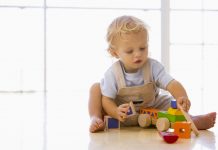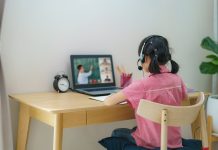Rageena Tahir, Head of EYFS at Fennies Nurseries, ponders if a pedagogical approach impacts an education setting for a child
Over the years, the approach and attitude towards the early years of a child’s life and the education and care that each child receives during this stage has evolved. Since the start of my career, I’ve seen studies continue to show that the care and education a child has received in the early years of their life will influence that individual through their childhood and into adult life. A major influence to the education a child receives is the pedagogical approach the setting they attend follows, as this will influence how each child interacts with their environment.
What are the pedagogical approaches?
Let’s start by answering what a pedagogy is. A pedagogy is the method and style of teaching and assessment used to provide experiences for children to support their overall development. The pedagogical approaches are split into learning foundations for children to reach their potential. The approaches are as follows:
Constructivist
An example of this is the Montessori approach. It values independence in children from a very young age using carefully designed environments that the children can explore and construct their own knowledge.
Social Constructivism
In this approach, built on by psychologist Lev Vygotsky, learning is a collaboration between the educator and the children. The environment might include authentic, challenging, multidisciplinary tasks.
Liberationism
Children are given an environment where their voices and opinions mean something. Developed from the work of Paulo Freire, children are encouraged to work together to create something, and this pedagogy values the process of discovery.
Behaviourism
Behaviourism is the belief that behaviour can be trained and changed depending on the environment an individual finds themselves. Behaviourism theorist John Watson famously said, “Give me a dozen healthy infants, well-formed, and my own specified world to bring them up in, and I’ll guarantee to take any one at random and train him to become any type of specialist I might select — doctor, lawyer, artist.” – John Watson, Behaviourism, 1930.(1)
You can see these factors are largely influenced by the control a child has over their own learning decisions and in consequence, the environment or setting they find themselves in.
What impact does a pedagogy have on an environment?
As you can see above, the pedagogies are deeply connected to the settings and environments they provide for the children. A setting for independence or one in a behaviourism setting looking to encourage musical talent would look and feel very different from each other. In a behaviourism environment, a child would probably be given an instrument and asked to copy the instructor. In comparison, in a constructivism environment, children might be given a selection of instruments which they can explore and interact with as their interest is piqued. A setting under each pedagogy will look very different, from the layout of the rooms to the way the children are encouraged or left to their impulses on whether to interact with the resources available. It stands to reason that the environment in which a child is taught will impact the way they learn and develop.
Nowadays, we see many early childhood settings developing their own pedagogical approach, depending on the values they want to promote. This is often done by the setting adopting various aspects of the different approaches and merging them. You might be able to identify this in the settings, for example, if the rooms are split into different zones or different areas of learning that allow a malleable experience for the children and their preferred interests and activities.
Which approach is the right approach?
I believe that mixing these approaches is in no way a bad thing. After all, there are clear benefits to each approach, and research is constantly presenting more concepts to us. Each child is different and learns in a different way, so we continually need to reflect on this and adapt to this.
I strongly believe that an effective pedagogy is one where adults have a sound understanding of child development, the child as an individual, each child’s individual interests, their preferred learning style and how to actually use all of this information to motivate and teach children effectively. This, in turn, inspires a lifelong love of learning in the child, which will directly drive and impact their personal and academic success.
There is no one size fits all approach, so in my opinion the right setting will put the child at the centre of everything they do and give them the opportunity to develop and express their individuality.
Contributor Profile
Editor's Recommended Articles
-
Must Read >> Education: Pedagogy of teaching
















